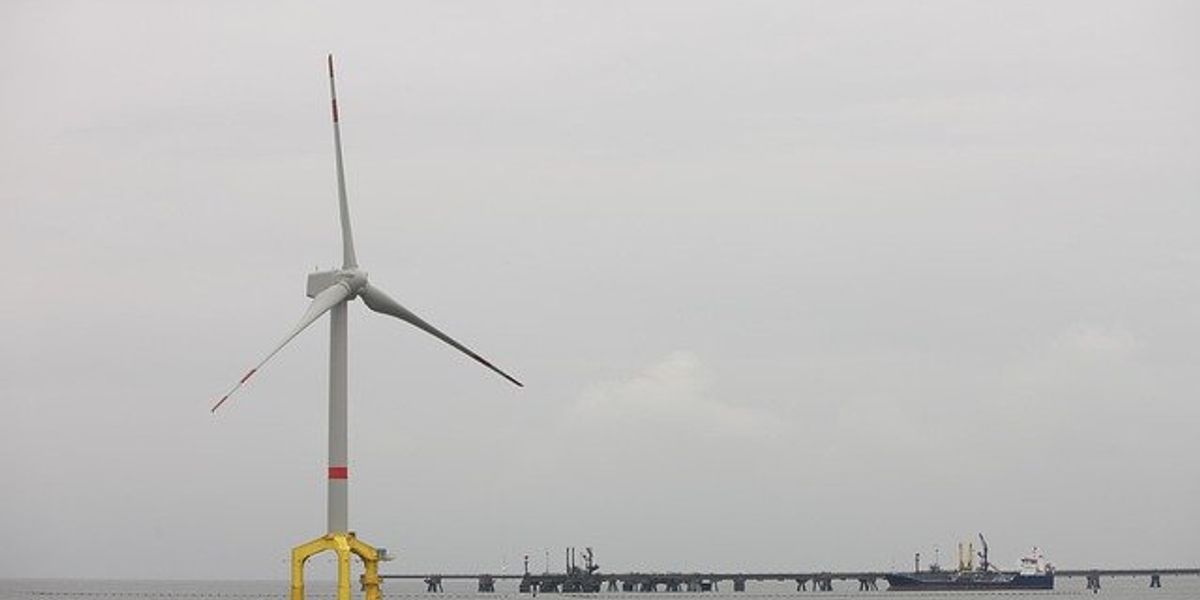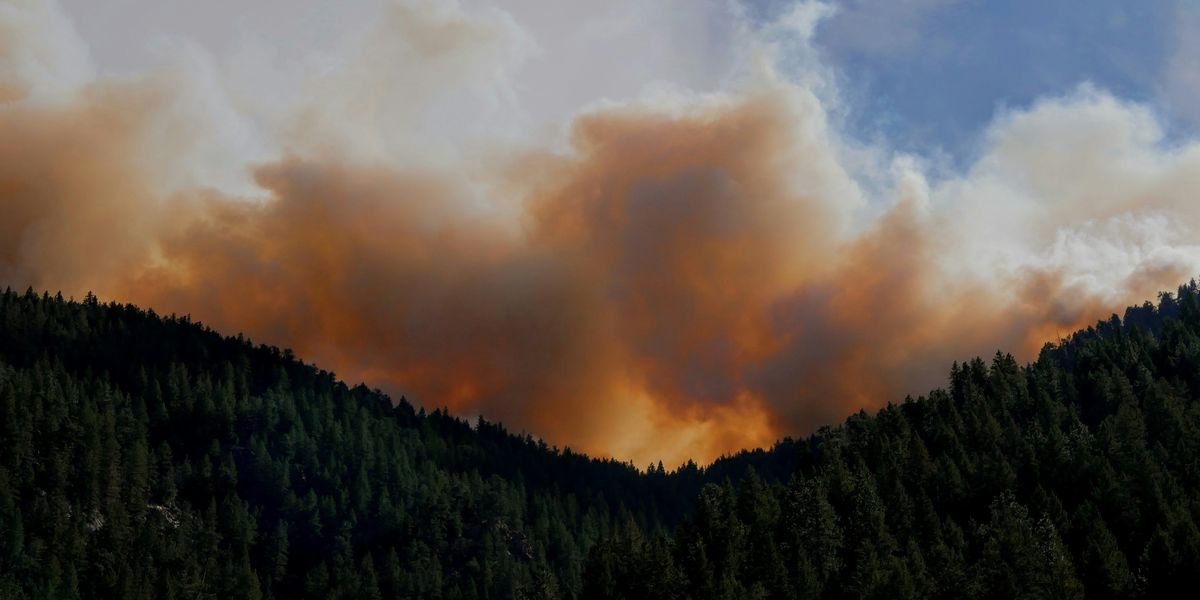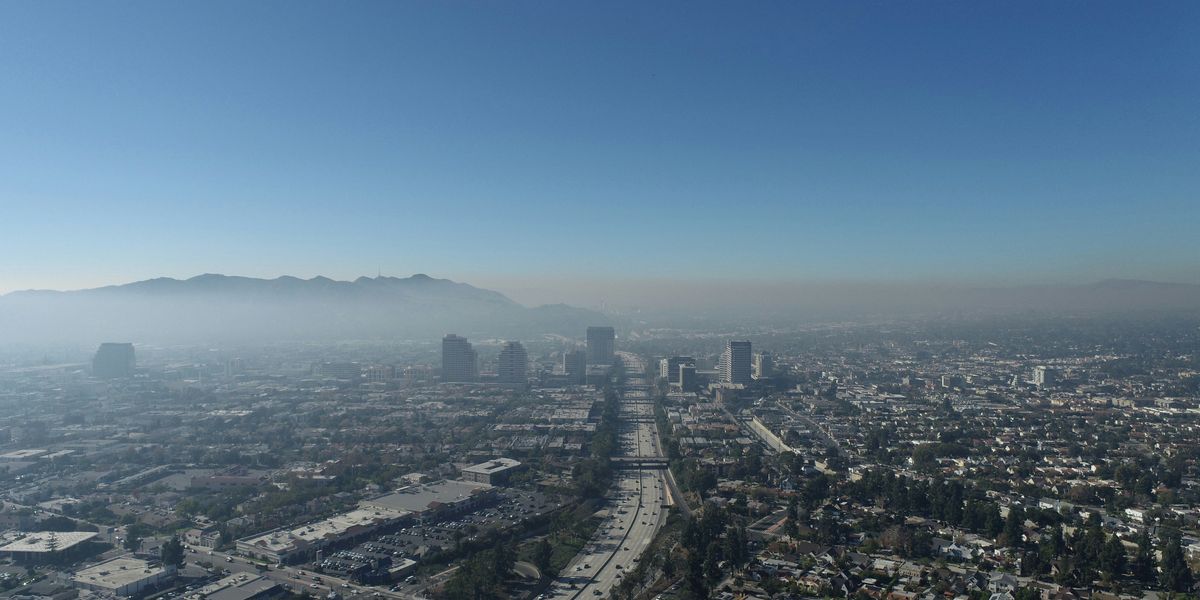air pollution
Trump EPA move could allow chemical plants to bypass pollution limits, increasing cancer risk
A recent analysis warns that potential exemptions to air pollution rules under the Trump administration may protect chronic polluters and expose millions to higher cancer risks.
In short:
- The EPA under President Trump is reviewing the HON rule, which targets emissions from 218 chemical facilities responsible for releasing known carcinogens near vulnerable communities.
- These facilities are often located in low-income, predominantly Black and Latino areas and have a documented history of violating clean air laws, with 23% persistently out of compliance.
- Ethylene oxide, a key target of the rule, is linked to high cancer risks, especially for children, but industry groups and Texas regulators continue to question U.S. Environmental Protection Agency science and push for looser standards.
Key quote:
“Rolling back the HON Rule is only going to make people sicker.”
— Tracey Woodruff, former EPA scientist and professor at the University of California San Francisco
Why this matters:
Communities near petrochemical plants — especially along the Gulf Coast — face heightened health risks from air pollution, including cancer, respiratory disease, and reproductive issues. Many of these neighborhoods are predominantly Black or Latino, with higher poverty rates and less access to healthcare, making them more vulnerable to industrial toxins. Ethylene oxide, a chemical emitted by these plants, is particularly dangerous; it mutates DNA and is linked to breast and blood cancers. Despite decades of science confirming its risks, political and industry pressure continues to challenge enforcement.
Learn more: EPA seeks to slash chemical plants’ cancer-causing emissions
New Mexico groups take oil pollution case to state Supreme Court
A coalition of environmental, youth, and Indigenous groups is asking the New Mexico Supreme Court to revive a lawsuit claiming the state has failed its constitutional duty to protect residents from oil and gas pollution.
In short:
- Plaintiffs argue the state has ignored Article 20, Section 21 of its constitution, which requires the protection of air, water, and natural resources, particularly amid the oil boom in the San Juan and Permian Basins.
- The New Mexico Court of Appeals dismissed the case last month, prompting plaintiffs to appeal directly to the state’s highest court, citing environmental harm and unequal protection.
- Oil and gas production in the state has grown tenfold since 2010, using billions of gallons of fresh water for fracking and contributing significantly to climate pollution.
Key quote:
“Oil and gas pollution continues to harm our communities, poison our water and air, and threaten our sacred places. The state has a constitutional obligation to control pollution and we’re calling on our highest court to uphold that duty.”
— Julia Bernal, executive director of Pueblo Action Alliance
Why this matters:
New Mexico is one of the country’s biggest oil producers, yet large parts of its fossil fuel industry remain shielded from full environmental oversight due to outdated exemptions. Fracking operations draw heavily on scarce freshwater reserves, accelerating stress in a state already battling severe drought and aridification from climate change. Airborne pollutants and toxic wastewater from fossil fuel extraction endanger frontline communities, many of them Indigenous, who face higher exposure to environmental hazards and fewer legal protections. With the state’s constitution promising clean air and water, the outcome of this case could test how far those rights extend.
Read more: New Mexico lawmakers struggle to regulate oil and gas amid federal rollbacks
How China raced ahead on clean energy while America clung to oil
Even as the climate crisis intensifies, China and the U.S. are charting wildly different energy paths — one doubling down on clean tech, the other on fossil fuels.
In short:
- China is aggressively expanding its global dominance in clean energy by building solar, wind, battery, EV, and nuclear infrastructure at unprecedented scale — including major investments abroad.
- The Trump administration is pushing an oil-and-gas agenda at home and abroad, undoing clean energy incentives while lobbying allies to invest in U.S. fossil fuels.
- The U.S. once led in renewable tech but failed to sustain investment, allowing China to corner the market through coordinated government support and control over key materials.
Key quote:
“When the federal government of the United States decides to go out of the race, it doesn’t stop the race. Other countries keep moving.”
— Rafael Dubeux, a senior official in Brazil’s Finance Ministry
Why this matters:
America — once a solar and wind innovator — is now backpedaling. The Trump administration is tossing lifelines to oil and gas companies, lobbying countries to buy U.S. crude, and rolling back policies that helped launch renewables in the first place. The U.S. is bet on short-term profits. China is playing the long game.
Read more:
Senate passes GOP budget bill, hampering US shift to clean energy
A Senate-approved Republican budget bill would gut core parts of the 2022 climate law, stalling clean energy growth and likely raising Americans’ utility bills. The bill now goes to the House for final approval.
In short:
- The Senate’s Republican budget bill removes a proposed tax on solar and wind but accelerates the expiration of tax credits for renewable energy, threatening hundreds of clean energy projects.
- While some renewable incentives for technologies like hydropower and nuclear remain, clean energy advocates warn the bill favors fossil fuels and eliminates EV tax credits and the methane fee.
- Industry groups like the American Petroleum Institute celebrated the bill as a boost to oil and gas, while Democrats say it will drive up costs and damage U.S. energy independence.
Key quote:
“If the bill becomes law, families will face higher electric bills, factories will shut down, Americans will lose their jobs, and our electric grid will grow weaker.”
— Abigail Ross Hopper, president and CEO, Solar Energy Industries Association
Why this matters:
The Republican-led budget bill, by fast-tracking the expiration of tax credits that have been driving wind and solar projects from coast to coast and slashing incentives for electric vehicles, effectively steps on the brakes just as the U.S. clean energy economy was beginning to hit its stride.
Read more: The real scam — rail against renewables, run away with factories
Exxon must pay $14.25 million over Baytown air pollution as Supreme Court declines appeal
The U.S. Supreme Court let stand a $14.25 million penalty against ExxonMobil for more than 16,000 Clean Air Act violations at its Baytown, Texas, petrochemical plant.
In short:
- The Supreme Court’s refusal to hear ExxonMobil’s appeal leaves intact a ruling from the 5th Circuit Court of Appeals, which upheld the $14.25 million civil penalty for pollution at the Baytown facility from 2005 to 2013.
- The lawsuit was filed in 2010 by Environment Texas and the Sierra Club, representing local residents exposed to over 10 million pounds of air pollutants, including carcinogens and ozone-forming chemicals.
- Plaintiffs say this is the largest penalty ever awarded in a citizen-led Clean Air Act case and argue it reinforces the public's right to hold polluters accountable in federal court.
Key quote:
"It's been a hard-fought battle for 16 years, and the citizens stuck it out all the way, and justice has prevailed."
— David Nicholas, attorney for the plaintiffs
Why this matters:
Petrochemical plants like Exxon’s Baytown complex emit volatile organic compounds, nitrogen oxides, and other hazardous air pollutants that can harm human health and the environment. These emissions contribute to smog formation, respiratory illnesses, and long-term cancer risks for nearby communities. Baytown sits in a heavily industrial corridor east of Houston, where residents — often lower-income and people of color — live in close proximity to refineries and chemical facilities. Chronic exposure to air pollution in these areas has been linked to higher rates of asthma, cardiovascular disease, and premature death. When enforcement of environmental laws fails or is delayed, the burden of pollution falls on those least able to avoid or address it, deepening environmental injustice.
Related:
How a global network of grassroots leaders is getting cities to ride more bikes
A worldwide “Bicycle Mayor” movement is helping cities ditch cars by empowering local cycling champions to push for change from the street up.
In short:
- After teaching herself to ride in Addis Ababa during the pandemic, Maren Ahlers started organizing women’s bike classes and now leads a 450-member cycling group.
- She joined the global Bicycle Mayor Network, a 150-member coalition in 34 countries that supports sustainable transit by advocating infrastructure, policy, and cultural shifts around cycling.
- Despite being unpaid and often facing bureaucratic resistance, these "mayors" are influencing city decisions, like Ethiopia’s move to build 100 kilometers of new bike lanes.
Key quote:
“It can really sound bizarre to some people that bicycles can be such a center of life. But it’s astonishing to see the energy that people put into that, the motivation that they have, and how much they can do.”
— Michela Chamonal, coordinator, Bicycle Mayor Network
Why this matters:
They’re not elected, not paid, and not sitting in city hall, but they’re showing up in public squares, schoolyards, and transportation hearings with one mission: make cities safer, saner, and more breathable by putting more people on two wheels. It’s climate action powered by everyday people pushing for healthier, more connected neighborhoods. And while they may not carry political clout, these “mayors” are becoming city leaders.
Read more: Bicycling is having a moment—let’s use it to make riding more safe and inclusive
Senate moves to gut clean energy tax credits as deal nears
The Senate was close to passing a sweeping GOP bill Tuesday morning that rolls back renewable energy tax credits, adds a new tax on wind and solar, and boosts fossil fuel development.
Amelia Davidson, Timothy Cama, Nico Portuondo, and Garrett Downs report for E&E News.
In short:
- The bill would cut off tax credits for wind and solar projects not operational by the end of 2027.
- A new excise tax targets clean energy projects that use materials from countries like China.
- Credits for nuclear, hydrogen, and geothermal remain, while fossil fuel drilling and permitting are expanded.
Key quote:
“If this passes, it is a death sentence for the wind and solar industries.”
— Sen. Ron Wyden (D-Ore.), Senate Finance Committee ranking member
Why this matters:
Rolling back clean energy support would stall progress on climate goals and raise energy prices. Fossil fuel expansion and regulatory rollbacks would increase health risks from pollution.


















